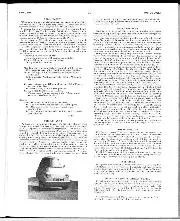
THE EGG AND I
THE EGG AND I ATI interesting account of a journey Of 8,0110 miles thrmigh eight European commies in a Seeotacar has been Written by the driver. E. F. N. Ji`plICIII…
THE enthusiasm of the motor sportsman has been put to a very severe test by the outbreak of war. On every hand there is proof that it has withstood this unfortunate test better, perhaps, than even the most optimistic of us could have hoped. The very object of the enthusiast in peace-time was to live for and with his car. War spelt severe restriction on the motoring that could be indulged in, and a further restriction on the performance standards that could be realised. Yet the sports-car owner has made every endeavour to keep his car on the road. Where cars have been laid up, they are not neglected, the owner spending his spare time, now usually extremely limited, in carrying out extensive overhaul and rebuilding. Correspondence to this paper has lost nothing in expression of sheer keenness, and very little in bulk, as a result of our necessity for teaching Nazi Germany a lesson. Now that it is obvious that complete curtailment of motoring will not come about unless something entirely unforeseen happens, such enthusiasm will continue to be given its head. Pessimists talk of a further rise in taxation with the forthcoming Budget—maybe they are correctly informed. But at least we can expect any such increase to be deferred until January 1st, 1942. So let us motor all we can until that date.
The war may have some interesting influences on sporting motoring. Too long has public opinion been that “anyone can drive—these days,” and that in consequence motoring is no longer a sport. The retort that anyone can obtain news to make them morbid from a mass-produced wireless set by twiddling the knobs, but that few can construct, service and modernise this apparatus they use daily, let alone appreciate all it puts over for them, is classed as a futile argument. Very well! Schooled army drivers—”experts” if you like—seem to have a fantastic number of accidents, whereas the habitual fast-car driver would be appalled, as would his insurance company, if he had a like record in a much longer period of driving, often with more difficult and less well-serviced vehicles. There is a lesson there. Then the war may show up to fastidious ex-fast car folk the more humble, albeit non-standard as like as not, cars in a new light—and we have always known that enthusiasm is as real at the bottom of the motoring scale as at the top. The war may provide more charm and beauty able to endure the real thing and no sidescreens, when peace returns— or do all Service vehicles handed to the W.A.A.F. and A.T.S. have enclosed, centrally-heated cabs? The enduring enthusiasm of motoring sportsmen many years our senior, whose enjoyment of the greatest of all games extends over twenty-five years or more, should give heart to those with competition careers ruined by hostilities, and to anyone who feels that the keenness experienced after five or six seasons of the Sport will be dulled by a few years of war-time abstention. A like philosophy can be developed by those gallant young men, now in the Services, who fear that wine, women and song will never be quite the same again. They are entitled to let the clock stand still while they are winning the war for us. “Youth” will endure into the peace. To kill or cramp this quality in the British people is more than war can do, any more than it can kill the enthusiasm of the true motoring sportsman.